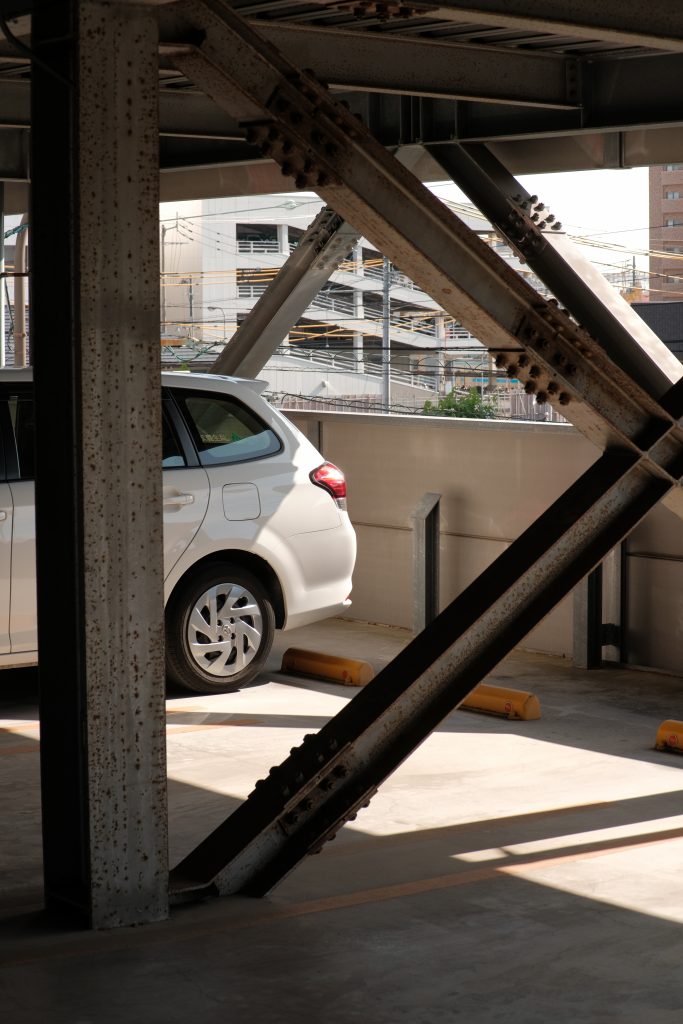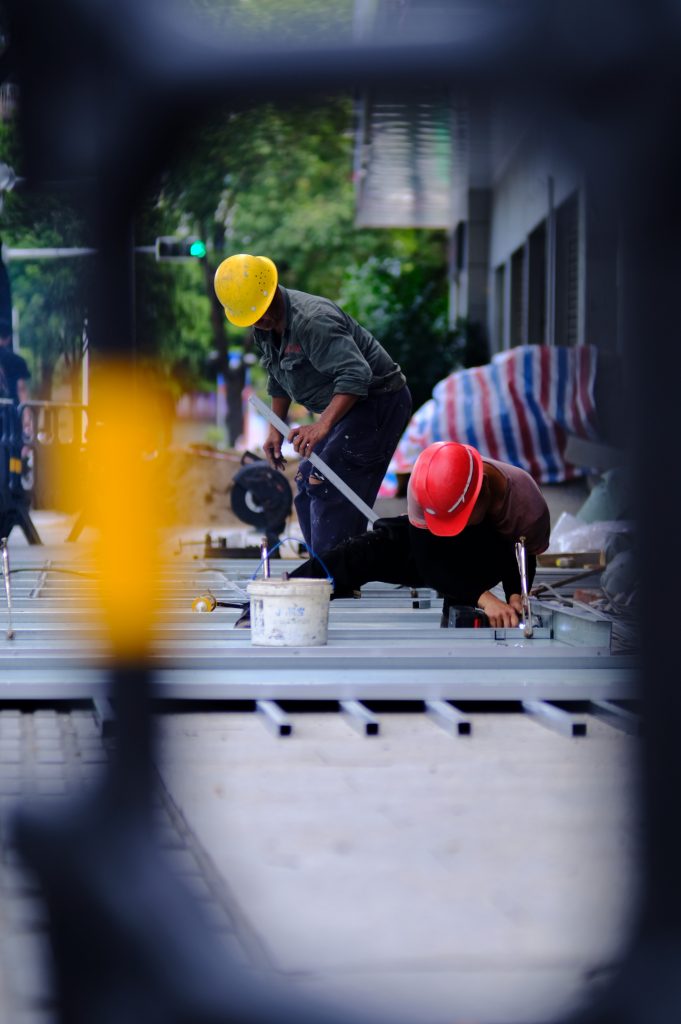If you find yourself caught in a construction dispute, seeking a fair resolution can be a daunting task. That’s where construction arbitration comes into play. With its ability to provide a quicker and cost-effective alternative to litigation, construction arbitration offers a way to resolve conflicts without the need for lengthy court battles. In this article, we will explore the ins and outs of construction arbitration, addressing common legal concerns and guiding you through the process. So, if you’re looking for a clearer path to resolving your construction disputes, keep reading to discover how construction arbitration can help you navigate the complexities and bring about a timely resolution.

1. What is Construction Arbitration?
Construction arbitration is a method of resolving disputes that arise in the construction industry. It is an alternative to traditional litigation, where disagreements are presented before a court of law. In construction arbitration, the parties involved agree to submit their dispute to an impartial third party, known as an arbitrator, who will make a binding decision on the matter. This process is governed by agreed-upon rules and procedures, allowing for a fair and efficient resolution of construction disputes.
2. Advantages of Construction Arbitration
2.1. Confidentiality
One of the key advantages of construction arbitration is the confidentiality it provides. Unlike court proceedings, which are generally open to the public, arbitration hearings are private. This means that sensitive information, trade secrets, and proprietary knowledge can be kept confidential, protecting the parties’ interests and preventing potential harm to their business reputation.
2.2. Expertise
Construction disputes often require specialized knowledge and expertise in the industry. Construction arbitration allows the parties to select arbitrators who have expertise in construction law and are familiar with the technical aspects of the industry. This ensures that the decision-makers have a deep understanding of the issues at hand, leading to more accurate and informed rulings.
2.3. Cost-effective
Another advantage of construction arbitration is its cost-effectiveness compared to traditional litigation. Court proceedings can be lengthy and expensive, involving legal fees, court costs, and other expenses. In arbitration, the process is usually streamlined, resulting in quicker resolutions and lower costs. The parties also have more control over the process and can agree on cost-sharing arrangements, further reducing their financial burden.
2.4. Flexibility
Construction arbitration offers more flexibility than traditional court proceedings. The parties have the freedom to choose the rules and procedures that will govern the arbitration process, tailoring it to their specific needs. This flexibility allows for a more efficient and time-saving process, as well as the ability to address unique issues that may not be adequately addressed in a courtroom setting.
2.5. Enforcement
Arbitration awards in construction disputes are generally easier to enforce compared to court judgments. The New York Convention on the Recognition and Enforcement of Foreign Arbitral Awards ensures that arbitration awards can be enforced in nearly 160 countries. This provides parties with the assurance that the decision reached through arbitration will be upheld and implemented, reducing the risk of non-compliance by the losing party.
3. Understanding the Construction Arbitration Process
3.1. Initiation of Arbitration
The construction arbitration process begins when one party initiates a request for arbitration. This is typically done by serving a notice of arbitration on the other party, which outlines the issues in dispute and the desired outcome. The notice of arbitration may also specify the method for selecting an arbitrator and the applicable rules for the arbitration.
3.2. Selection of Arbitrator
Once the arbitration is initiated, the parties will need to agree on the selection of an arbitrator. This can be done by mutual consent or by following a pre-agreed procedure, such as appointing an arbitrator from a designated list. It is important to choose an arbitrator who has the necessary qualifications, expertise, and experience in construction law to ensure a fair and impartial resolution.
3.3. Preliminary Hearing
After the arbitrator is selected, a preliminary hearing is typically held to discuss procedural matters and set a timeline for the arbitration process. During this hearing, the parties may also address any preliminary issues or disputes that need to be resolved before moving forward with the main arbitration proceedings.
3.4. Discovery Phase
The discovery phase in construction arbitration allows the parties to exchange information, documents, and evidence related to the dispute. This process helps each party to understand the other’s case and build their arguments. Discovery methods may include requests for documents, interrogatories, depositions, or site inspections. The arbitrator may also limit the scope of discovery to manage time and costs effectively.
3.5. Hearing
The hearing is the main stage of the construction arbitration process. It is similar to a trial in a courtroom, where both parties present their case and arguments before the arbitrator. The hearing provides an opportunity for witnesses to testify, experts to give their opinions, and evidence to be presented. The arbitrator will consider all the evidence and arguments before making a final decision.
3.6. Award
Once the hearing is concluded, the arbitrator will issue an award, which is a written decision that resolves the dispute. The award is typically binding and enforceable, meaning that the parties are required to comply with its terms. The award may include monetary damages, injunctions, or other remedies to address the issues in dispute.
4. Choosing the Right Construction Arbitrator
4.1. Qualifications and Experience
When selecting a construction arbitrator, it is crucial to consider their qualifications and experience. Look for arbitrators who have relevant industry experience and a deep understanding of construction law. They should have a proven track record in handling construction disputes and be familiar with the technical and legal complexities of the industry.
4.2. Neutrality and Impartiality
A key requirement for a construction arbitrator is neutrality and impartiality. The arbitrator should not have any conflicts of interest that may compromise their ability to make fair and unbiased decisions. Ensure that the arbitrator is independent and has no personal or financial ties to either party.
4.3. Expertise in Construction Law
Given the specialized nature of construction disputes, it is essential to choose an arbitrator with expertise in construction law. Look for arbitrators who have a strong background in construction contract interpretation, building regulations, industry standards, and other relevant legal aspects. This expertise will enable the arbitrator to grasp the technical issues involved and make informed decisions.
4.4. Case Management Skills
Effective case management is crucial for a smooth and efficient arbitration process. Choose an arbitrator who has excellent organizational and case management skills, as well as the ability to conduct fair and orderly proceedings. A skilled arbitrator will be able to set clear timelines, manage evidence and submissions, and ensure that the parties have equal opportunities to present their case.

5. Common Issues Resolved through Construction Arbitration
5.1. Breach of Contract
Construction projects often involve complex contracts, and disputes frequently arise when one party fails to fulfill their contractual obligations. Construction arbitration provides a fair and efficient mechanism for resolving breach of contract disputes, ensuring that the non-breaching party receives appropriate remedies or damages.
5.2. Construction Defects
Construction defects can cause significant financial losses and safety concerns. Arbitration allows for an expert evaluation of the defects and provides a platform for deciding liability, allocating damages, and determining the necessary corrective measures.
5.3. Payment Disputes
Payment disputes are common in the construction industry, with issues often arising around issues such as progress payments, change orders, and delays. Arbitration offers a way to resolve these payment disputes in a timely and cost-effective manner, determining the amounts owed and addressing any breach of payment terms.
5.4. Change Orders and Scope Creep
Change orders and scope creep refer to situations where the scope of work or project requirements change during the construction process, often leading to disputes. Construction arbitration allows for a fair evaluation of change orders, considering relevant contractual provisions, costs, and impacts on the project.
5.5. Delays and Time Extensions
Construction projects can be subject to various delays, impacting project timelines and resulting in monetary losses. Arbitration provides a forum to assess the causes and responsibility for delays, determine the entitlement to time extensions, and consider potential compensation for damages suffered.
5.6. Non-performance or Termination
When one party fails to perform its obligations or terminates a contract prematurely, construction arbitration can help provide a resolution. The arbitration process allows for a thorough examination of the circumstances surrounding the non-performance or termination, determining liability and appropriate remedies for the affected party.
6. Tips for a Successful Construction Arbitration
6.1. Prepare Thoroughly
Thorough preparation is key to a successful construction arbitration. Gather all relevant documents, evidence, and expert opinions to support your case. Review the applicable contract terms, construction plans, and specifications to understand your rights and obligations. Adequate preparation will help you present a strong and persuasive case before the arbitrator.
6.2. Choose the Right Legal Representation
Having the right legal representation is crucial in construction arbitration. Engage experienced construction law attorneys who understand the intricacies of construction disputes and can guide you through the arbitration process. They can help you navigate complex legal issues, present your case effectively, and maximize your chances of a favorable outcome.
6.3. Collaborate with Your Arbitrator
Establishing a collaborative relationship with the arbitrator is essential. Engage in open and respectful communication, share relevant information promptly, and address any concerns or procedural matters that may arise. Building a constructive relationship with the arbitrator can help ensure a fair and efficient arbitration process.
6.4. Communicate Effectively
Effective communication is vital throughout the construction arbitration process. Clearly articulate your position, evidence, and legal arguments to the arbitrator. Keep your communication concise, organized, and focused on the key issues. Be prepared to respond to the other party’s arguments and present counterarguments effectively.
6.5. Preserve Evidence
Preserving evidence is crucial in construction arbitration. Document all relevant communications, changes, delays, and damages. Retain all supporting documents, including contracts, invoices, correspondence, and photographs. Properly maintaining and presenting evidence will strengthen your case and allow the arbitrator to make an informed decision.
6.6. Understand the Arbitration Agreement
Before entering into a construction arbitration, carefully review and understand the arbitration agreement. Familiarize yourself with the agreed-upon rules, procedures, and applicable laws. Know your rights and responsibilities, as well as the scope and limitations of the arbitration process. Understanding the arbitration agreement will help you navigate the process effectively.
7. Differences between Mediation and Construction Arbitration
While construction arbitration and mediation are both forms of alternative dispute resolution, they differ in significant ways. Mediation is a non-binding process focused on reaching a mutually acceptable resolution through facilitated negotiations. The mediator acts as a neutral third party, guiding the parties towards a settlement. Construction arbitration, on the other hand, involves an arbitrator who makes a binding decision on the dispute. It follows a more formalized process, similar to a court trial, and results in a final and enforceable decision.
8. Limitations of Construction Arbitration
8.1. Limited Discovery
Construction arbitration often involves limited discovery compared to court litigation. The arbitrator may restrict the scope and extent of discovery to manage time and costs efficiently. While this can expedite the process, it may limit the parties’ ability to fully investigate and present all relevant evidence.
8.2. Absence of Judicial Review
Unlike court judgments, arbitration awards are generally not subject to the same level of judicial review. There are limited grounds for challenging or appealing an arbitration award, such as fraud, bias, or a significant error of law. This can limit the parties’ ability to seek a higher level of review or correction if they disagree with the arbitrator’s decision.
8.3. Potential Bias
Although arbitrators are expected to be neutral and impartial, there is a potential for bias, especially in cases where repeat arbitrators or industry insiders are involved. Parties should conduct thorough background checks and select arbitrators who have a reputation for fairness and professionalism.
8.4. Limited Remedies
Construction arbitration may not offer the same range of remedies as court litigation. While monetary damages are commonly awarded, other forms of relief, such as specific performance or injunctive relief, may be more challenging to obtain through arbitration. Parties should consider the available remedies and their potential suitability for their specific dispute.

9. Important Factors to Consider before Opting for Construction Arbitration
9.1. Cost
Consider the cost implications of construction arbitration compared to traditional litigation. While arbitration can be more cost-effective overall, it is important to understand and budget for the expected expenses, including arbitrator fees, legal representation, and administrative costs.
9.2. Speed
Evaluate the speed of resolution offered by construction arbitration. Determine whether a swift resolution is a priority for your specific dispute and consider the potential impact on your operations and finances.
9.3. Confidentiality
Assess the importance of confidentiality in your case. Determine whether preserving the privacy of sensitive information and details of the dispute is crucial for your business reputation and interests.
9.4. Expertise and Industry Knowledge
Consider the complexity of the issues involved in your construction dispute. Ensure that the selected arbitrator has the necessary qualifications, expertise, and industry knowledge to understand and adjudicate your specific case accurately.
9.5. Mutual Agreement
Finally, the decision to opt for construction arbitration should be a mutual agreement between the parties involved. Consider whether arbitration aligns with your business objectives and the desired outcomes of the dispute resolution process.
10. Conclusion
Construction arbitration is an effective and efficient method for resolving disputes in the construction industry. It offers advantages such as confidentiality, expertise, cost-effectiveness, flexibility, and enforceability. By understanding the construction arbitration process, choosing the right construction arbitrator, and following key tips, parties can navigate the process successfully. It is important to evaluate the limitations of construction arbitration, consider the factors before opting for this dispute resolution method, and make an informed decision that aligns with your specific circumstances and goals.